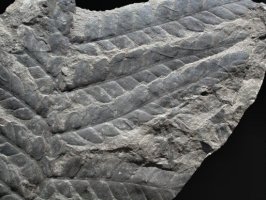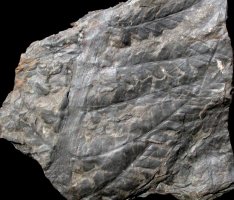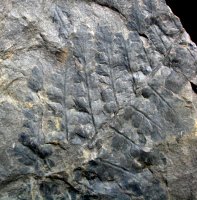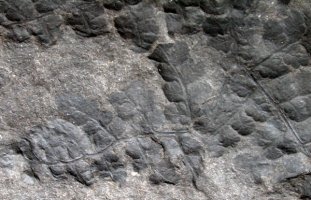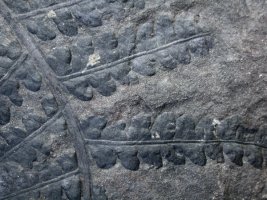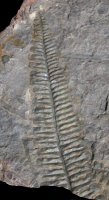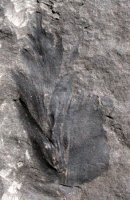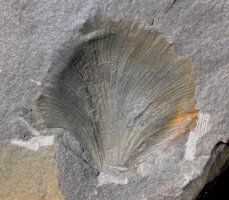Seed ferns
Seed ferns are also well represented in het Graissessac basin. Most common species is Odontopteris minor, followed by Dicksonites pluckenetii and next by Callipteridium pteridium. See also the photos at the bottom of this page.
Odontopteris
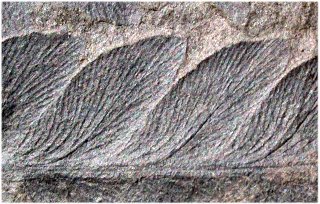 Characteristic for this genus
is the veination of the pinnules: no midvein or midvein is very vague; the
veins are more or less equivalent to each other and they radiate from the
attachment on the axis. Several branching veins depart directly from the
axis into the pinnule. See the picture on the right.
Characteristic for this genus
is the veination of the pinnules: no midvein or midvein is very vague; the
veins are more or less equivalent to each other and they radiate from the
attachment on the axis. Several branching veins depart directly from the
axis into the pinnule. See the picture on the right.
Odontopteris minor. This
species is characteristic for the Stephanian and is abundant in Graissessac.
The pinnules are small: about 1 cm long and 2.5 - 3 mm wide. They are a bit
triangular and mostly acuminate.
Odontopteris brardii. This
species is much less common in Graissessac and it can be distinguished from
the preceding one by the larger pinnules (up to 2.5 cm long and 8 mm
wide).
Odontopteris schlotheimii.
Small, rounded pinnules with broad attachment to the axis.
Cyclopteris
Roundish or triangular leaves, which are mostly found detached. They
were attached to the axis of a seed fern as a kind of bract.
Cyclopteris van
Odontopteris. These are triangular, deeply incised leaves.
Cyclopteris. Roundish
leaflets also occur. They are from other seed ferns.
Dicksonites
Dicksonites pluckenetii. A
very common species. The pinnule border is lobed and the pinnules themself
are nearly always somewhat convex.
Callipteridium
Callipteridium pteridium.
Also a rather common species. It resembles Pecopteris, because
of the fact that the pinnules are broadly attached to the axis. The pinnules
have a clear, sunken midvein, they look a bit irregular and they are strikingly
convex.
Pseudomariopteris
Pseudomariopteris busquetii.
The lowermost pinnules of a pinna are different from the other ones:
they possess a large lobe at the lower side.
Click on one of the photos below to proceed.
|
||||
